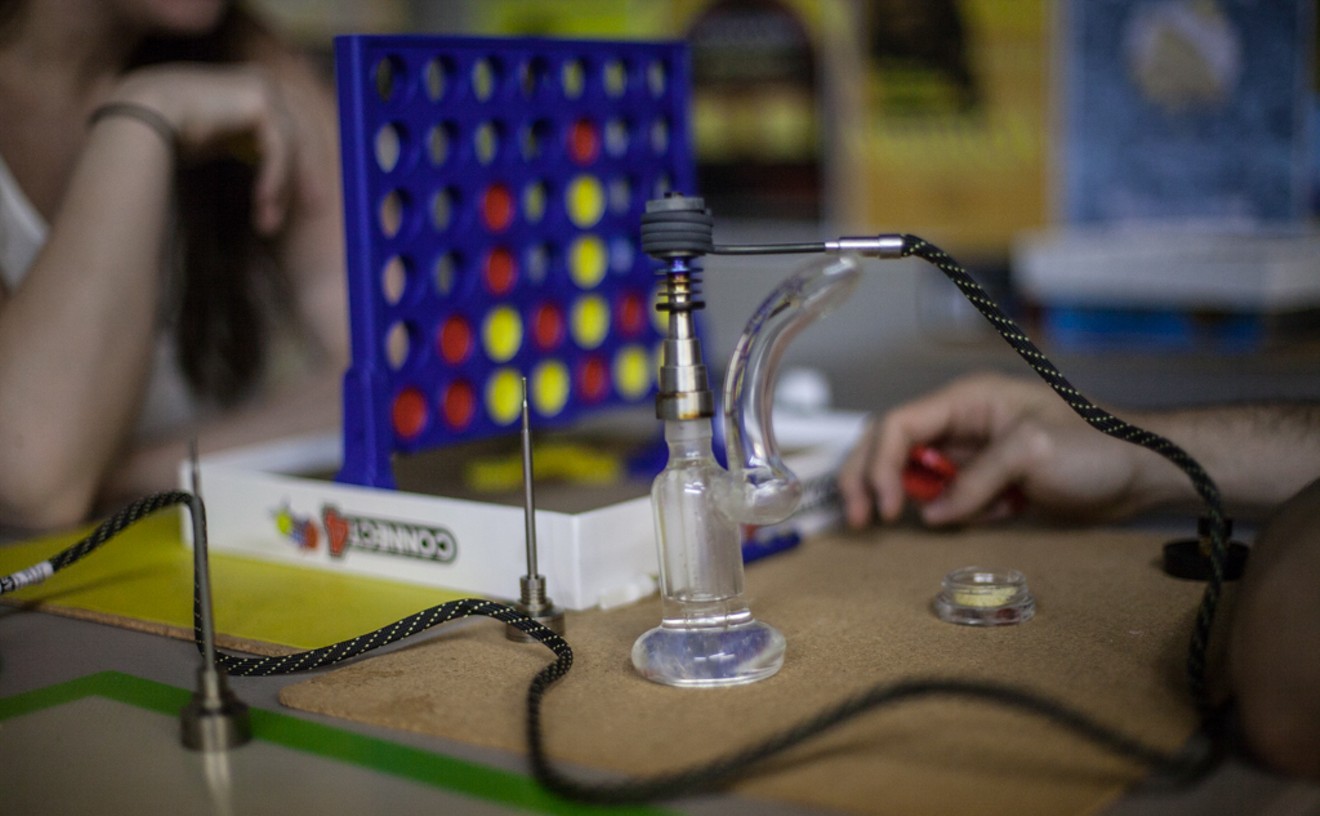Medical marijuana will soon be a legal alternative to opioid prescriptions in Colorado, in the latest of several wins for cannabis advocates in 2019.
Governor Jared Polis signed Senate Bill 13 into law on Thursday, May 23. It will give Colorado doctors the power to recommend medical marijuana for any condition for which opioids are currently prescribed as soon as August 2, when the law goes into effect.
"Colorado loses a community member to drug overdose roughly every nine hours, with opioids contributing to over half those deaths. Those deaths are preventable," Polis said during the bill signing. "In light of these statistics, it is incumbent on our lawmakers to provide physicians with opportunities to discuss alternatives to opioids and to provide patients with choices even if additional research regarding medical marijuana is necessary."
Polis was citing a report from the Colorado Health Institute that studied over 1,000 drug overdose deaths in the state in 2017. The study emphasized the concentration of deaths in southern Colorado, with the combined rates in Pueblo and Las Animas counties more than doubling the state average. However, populated counties such as Denver and El Paso also had rates higher than the state average.
A study done by several universities showed that counties with medical marijuana dispensaries had 6 to 8 percent fewer opioid overdose deaths and 10 percent fewer heroin overdose deaths than counties without them from 2009 to 2015.
Introduced as an aid to helping end the opioid crisis in Colorado, the bipartisan bill had a relatively smooth ride through the state legislature.
Once it's law, doctors would decide whether to prescribe opioids or recommend medical marijuana or a mixture of both to patients. While some addiction specialists who opposed the bill worried about the potential of enabling dual drug use, drug-reform advocates argued that the measure was a needed step in lowering opioid dependency. Unlike the other ten conditions on Colorado's list of approved conditions for MMJ, these will not get one-year recommendations, with patients instead receiving short-term medical marijuana cards for weeks or months before visiting their doctors again.
Amanda Bent, former manager of policy for the recently closed Colorado chapter of the Drug Policy Alliance, helped craft both the 2018 and 2019 opioid bills. An advocate of drug-policy reform, Bent says that giving patients the opportunity to find the right treatment through open conversations with their doctors can help them find the healthiest way to manage pain.
"This bill is kind of at the intersection of marijuana policy reform and opioid harm reduction work. We wanted to be realistic and pragmatic, and move away from primitive criminal approaches that just send people to the shadows, and sometimes cause more problems than drug use itself," she explains. "We know from research that folks who use opioids tend to use less when supplementing their therapy with medical marijuana, so this is a way for them to avoid it altogether, or decide if some kind of complementary use is appropriate after talking with their treatment team."
During the 2018 session, language that would've added acute pain to the state's list of medical marijuana conditions was stricken from the bill, and although a proposal to add autism spectrum disorder made it all the way through, the entire bill was vetoed by then-governor John Hickenlooper. This session, autism was added to qualifying conditions through a separate bill, which Polis signed in April.
State Representative Edie Hooton helped lead the legislative effort to add both the autism and opioid conditions to the approved MMJ list in 2018 and 2019; last year she saw three measures vetoed by Hickenlooper.
"Our former governor is cannabis-averse in any of its recreational or medical [applications]. I don't think he ever spent real time informing himself, and I think he was prejudiced against it. He never communicated with any of the bill sponsors about his intentions last year, and he waited until the last day to veto," she says. "I really appreciate the fact that Governor Polis is very well educated on cannabis, but he's also in constant communication with legislators about where he is with their bills."
On May 23, Polis also signed a bill into law that allows children under the age of eighteen to have more than one primary medical marijuana caregiver, allowing each of their parents or guardians to serve in such a role. Previously, a child MMJ patient could only have one designated caregiver, which parents said created logistical hardships.
[
{
"name": "Air - MediumRectangle - Inline Content - Mobile Display Size",
"component": "12017618",
"insertPoint": "2",
"requiredCountToDisplay": "2"
},{
"name": "Editor Picks",
"component": "17242653",
"insertPoint": "4",
"requiredCountToDisplay": "1"
},{
"name": "Inline Links",
"component": "18838239",
"insertPoint": "8th",
"startingPoint": 8,
"requiredCountToDisplay": "7",
"maxInsertions": 25
},{
"name": "Air - MediumRectangle - Combo - Inline Content",
"component": "17261320",
"insertPoint": "8th",
"startingPoint": 8,
"requiredCountToDisplay": "7",
"maxInsertions": 25
},{
"name": "Inline Links",
"component": "18838239",
"insertPoint": "8th",
"startingPoint": 12,
"requiredCountToDisplay": "11",
"maxInsertions": 25
},{
"name": "Air - Leaderboard Tower - Combo - Inline Content",
"component": "17261321",
"insertPoint": "8th",
"startingPoint": 12,
"requiredCountToDisplay": "11",
"maxInsertions": 25
}
]












